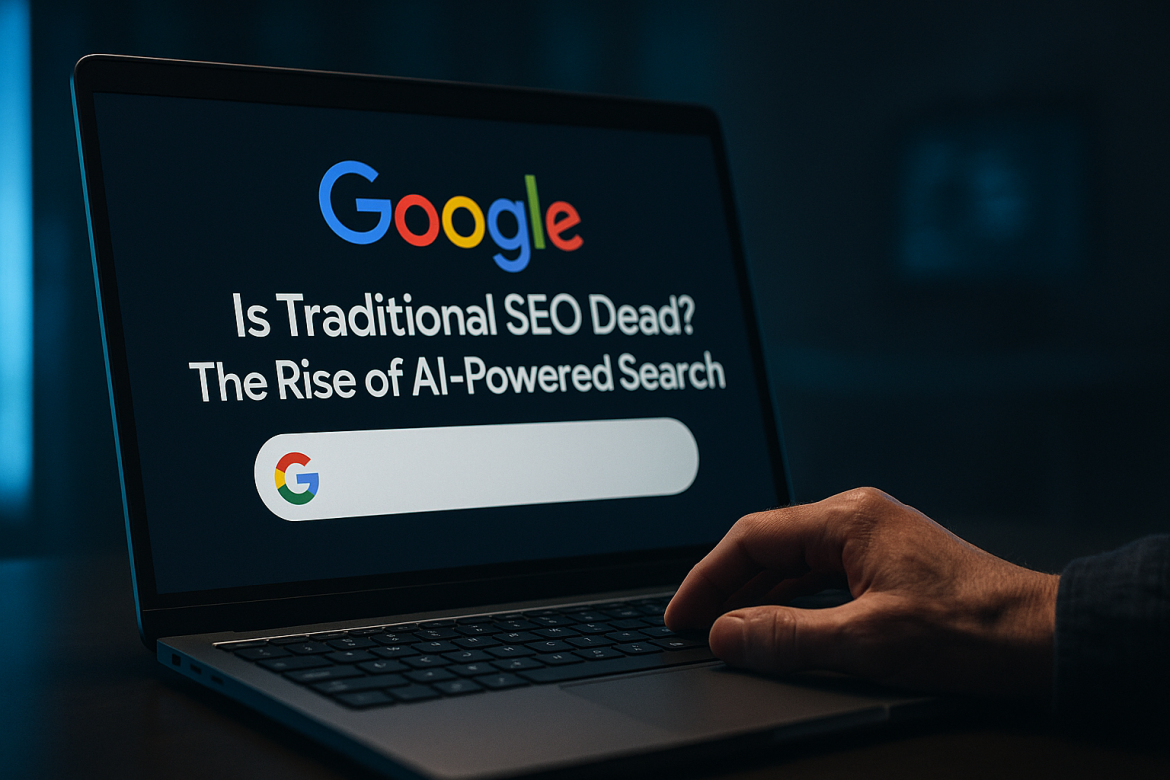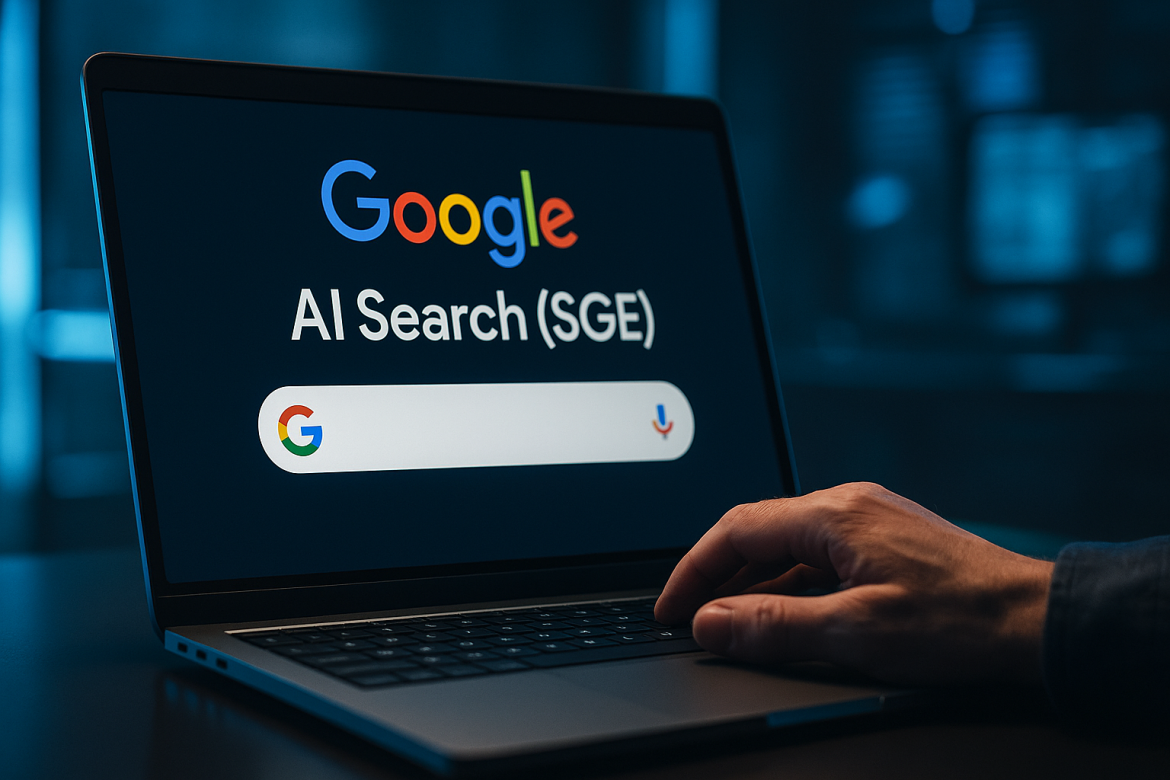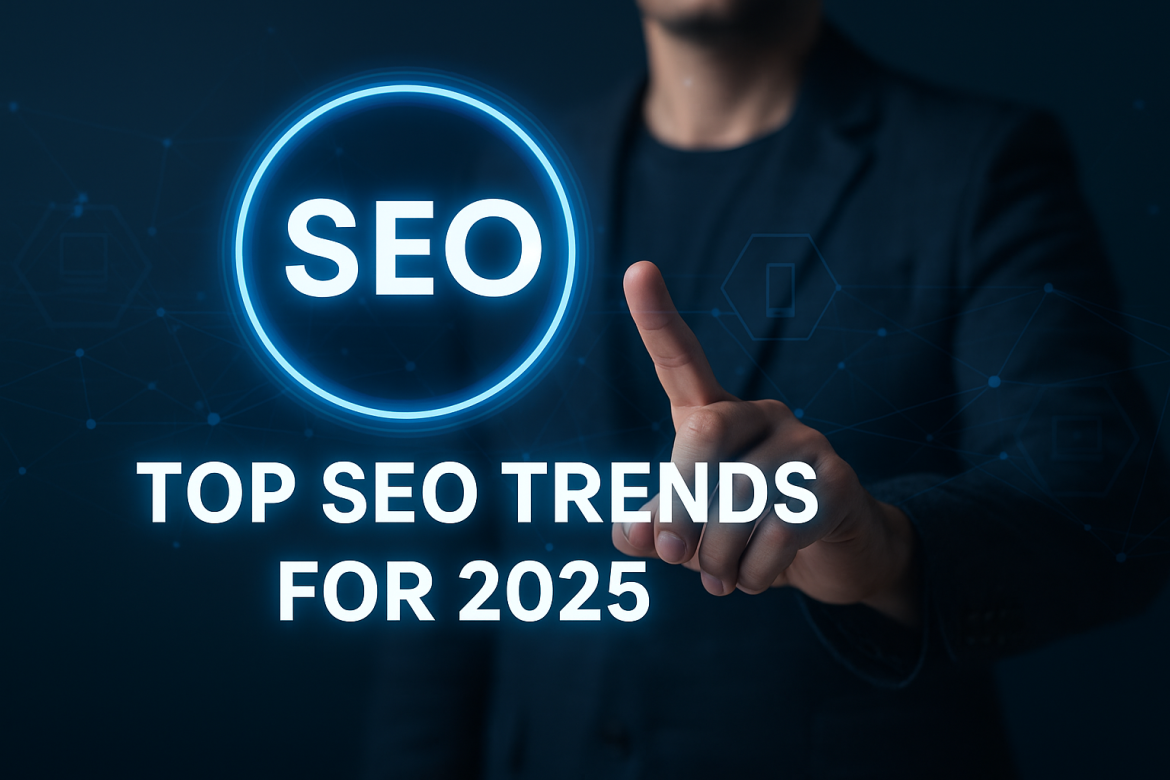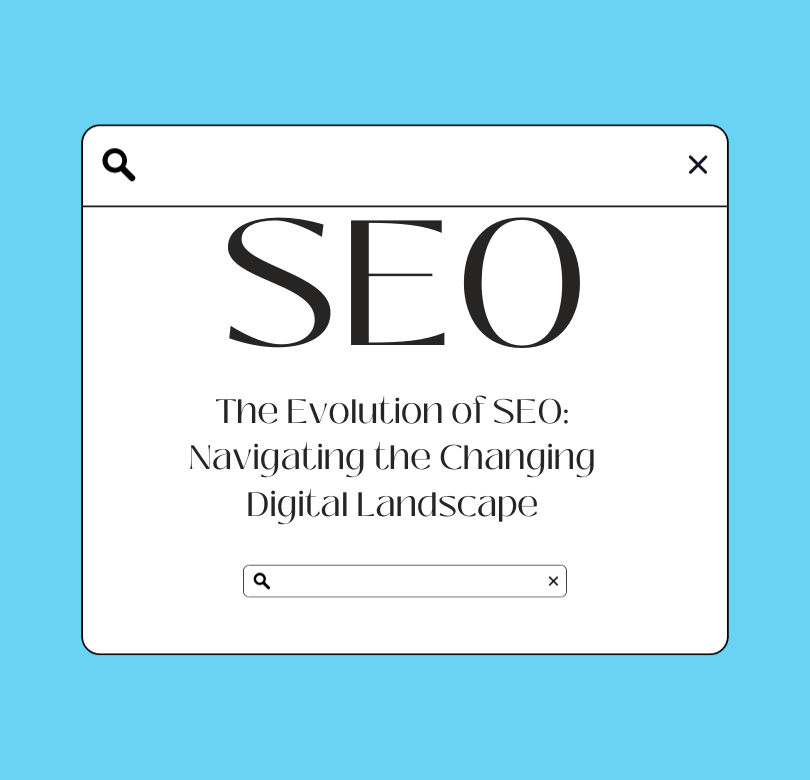Search engine optimization (SEO) has always been a moving target. But with the advent of AI-powered search engines—like Google’s Search Generative Experience (SGE)—we’re no longer facing just another algorithm update. We’re witnessing a complete overhaul of how users interact with information and how rankings are determined. The once-reliable rules of traditional SEO are being rewritten in real-time by machine learning, natural language processing, and generative AI.
AI-Powered Search: What Is It?
AI-powered search integrates artificial intelligence technologies to better understand queries, predict intent, and generate more contextual answers. Instead of serving up a list of links, platforms like Google SGE or Bing Copilot now generate responses that synthesize content from multiple sources. This emerging model emphasizes context, user behavior, and semantic relevance over classic ranking signals like backlinks or exact-match keywords.
According to Google’s official SGE announcement, the intent is to make search “more natural and intuitive.” This means that AI now evaluates content not just by keywords, but by how well it satisfies user intent, rendering traditional on-page tactics insufficient on their own.
Traditional SEO: Once Dominant, Now Insufficient
Traditional SEO focuses on optimizing content using static elements:
- Keyword placement
- Meta descriptions
- Header structure
- Link building
- Technical audits
These tactics still hold value, but AI has changed the hierarchy of importance. For example, AI may prioritize content that directly answers a user’s question over a page with more backlinks or optimized tags. Traditional SEO can get you indexed—but not necessarily featured in AI summaries.
Learn how to optimize legacy blog content for modern algorithms in this guide.
How AI Understands User Intent Differently
One of the most revolutionary changes brought by AI is the semantic understanding of search queries. Unlike traditional algorithms that focused on exact keywords, AI models analyze:
- Search context
- Conversational patterns
- Entity relationships
- Historical user behavior
For example, a query like “best camera for wildlife 2025” might generate a paragraph summary rather than a list of top-10 articles. If your content doesn’t directly answer that question, it likely won’t appear—no matter how technically optimized it is.
AI’s ability to “read between the lines” means content must not only inform, but engage and anticipate.
Content Is Still King—But Context Is the New Queen
SEO in the age of AI rewards depth, readability, and topical authority. That means your content must:
- Cover the topic comprehensively
- Use natural, human-sounding language
- Anticipate follow-up questions
- Include helpful visuals or summaries
See how we apply these principles in our guide on How Google’s SGE Is Revolutionizing SEO.
Featured Snippets Are Being Replaced
AI-powered search reduces visibility for traditional organic links. In fact, many queries no longer show “blue links” first. Instead, they display AI-generated answers at the top, pushing organic listings further down.
So the real question is: How do you get featured inside that AI-generated box?
The answer lies in structured, intent-driven content supported by schema markup and topic clusters.
AI and E-E-A-T: Experience, Expertise, Authority, Trust
Google’s AI still relies on the E-E-A-T framework. Content that demonstrates real expertise and human insight is more likely to be included in AI summaries. This is why first-person experiences, original research, and professional insights are more valuable than ever.
Boost your authority by leveraging brand trust. See how Effective Branding Strategies contribute to better SEO outcomes.
New SEO Tactics for an AI-Driven World
Here’s how to adapt your SEO strategy for the AI era:
1. Focus on Topical Authority
Build complete hubs around one topic rather than isolated blog posts. For instance, if you’re covering digital marketing, create interconnected content about:
- PPC
- SEO
- Web design
- Social media
Check out our resource on Making Digital Magic to understand how to create unified strategies.
2. Write Conversational Content
Use language that mimics how people speak. Answer real questions clearly and conversationally. Long-form, jargon-heavy posts are out—helpful, reader-first writing is in.
3. Update Your Existing Content Frequently
AI prioritizes freshness. Updating older blog posts with new data, trends, and links keeps them relevant in the eyes of both bots and users. Tools like Google’s Search Console and Heatmaps can identify top-performing content to refresh.
See: How to Optimize Older Pages for AI Search
The Role of Schema and Structured Data
Structured data is crucial in helping AI understand the context of your content. Use schema for:
- FAQs
- How-to guides
- Reviews
- Products
Implementing structured data not only helps with AI comprehension but also improves visibility in search features like rich snippets and voice search results. Want to go deeper? Don’t miss our guide on Voice Search Optimization.
AI and Local SEO: Hyper-Personalized Results
AI doesn’t just understand the question—it understands the location. Businesses now need to optimize for geo-intent, local phrases, and customer proximity. That means getting verified on Google My Business and having location pages that answer local queries.
Get started with our comprehensive Local SEO Blueprint for Ottawa.
Should You Still Invest in Traditional SEO?
Yes—but with smart pivots. While AI search minimizes the importance of raw keyword counts or domain metrics, it still values:
- Technical soundness
- Fast-loading pages
- Mobile responsiveness
- Secure websites
For example, investing in a well-structured, modern site can greatly impact SEO outcomes. Learn more in What Does Web Design Cost in Ottawa?
AI Search’s Impact on Monetization & CTR
AI-generated answers may reduce click-through rates for organic listings. That’s why you must offer unique value that can’t be summarized by a machine. Add value with:
- Case studies
- Real data
- Video explainers
- Downloadable assets
Explore video strategy tips in our article: Gain More Views on Your YouTube Videos
Conclusion: The Future Is Hybrid SEO
AI won’t kill SEO—it will evolve it. The key is to blend traditional SEO foundations with new-age AI understanding. Content must be technically optimized, semantically rich, and emotionally intelligent.
Embrace the new wave or risk becoming invisible.
Final Internal Link: Ready to Adapt to AI Search?
We help businesses stay ahead in a rapidly evolving digital world. If you’re ready to upgrade your SEO strategy for AI-driven search, contact our team today for a free consultation.

